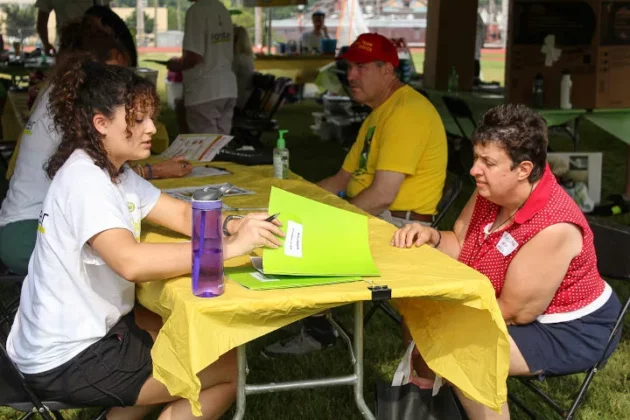
MPH Applied Practice Experience
The Applied Practice Experience (APEX) lets you put your knowledge to work in a community-based public health setting. This 240-hour work experience, which is six course credits, allows you to develop skills and professional readiness under the guidance of a public health mentor and a community mentor (known as a “preceptor”). It’s also a wonderful opportunity to give back to community members and be part of a professional team.
Madison is our state’s capitol city and offers many opportunities within the Wisconsin Department of Health Services. Many large non-profits are located here, too. Whether your experience unfolds within a government agency, a community non-profit, a public or private school, or a rural or urban location outside of Madison, it will be designed to benefit both you and the community partner.
Put Your Knowledge To Work
The MPH program has built many strong relationships with community partners. The opportunities are as varied as your interests. As your first year gets underway, advisors will help you navigate the placement process.
Integrated Learning Experience
You will draw on your Applied Practice Experience to complete a practice-based requirement known as the Integrative Learning Experience (ILE). The ILE demonstrates that you have attained all MPH program competencies through the course of the MPH degree, and represents the culmination of your degree.
The ILE consists of three components:
- High-quality written product based on the APEX
- Poster representing the work done through the APEX, along with presenting that poster at the MPH program’s annual poster session in May
- Portfolio that provides evidence (mostly through MPH coursework and APEX) that you have demonstrated mastery of the MPH program competencies
ILE review: The finished portfolio and high-quality written product is presented to the public health mentors during a required ILE review presentation. This student facilitated presentation is an opportunity to summarize time spent in the program and demonstrate mastery of the public health competencies. The portfolio review is completed during the final semester in the program for MPH-exclusive students, and typically in the final MPH semester for dual degree students.

Vanessa Dingman, MPH student, APEX at Special Olympics Wisconsin
Public Health Mentors Provide Expert Guidance
Public health mentors add great value to your APEX. You will receive insight, guidance and encouragement from your mentor as you navigate your work experience. You may also have the chance to learn about a particular area of public health from a top expert in the field.
Community Partners Share Real-World Knowledge
Within the community organization, you will work with another mentor known as a “preceptor,” who is affiliated with the organization. The preceptor guides you through the day-to-day experience, serves as a resource for questions and offers invaluable insight about the functioning of a professional team in a public health organization.
Focusing on Children’s Health
MPH student Lauren Sheahan (‘21) completed an Applied Practice Experience focusing on the “default beverage policy” for kids’ meals at restaurants.
Check out our YouTube channel for more APEX videos.
The UW School of Medicine and Public Health Master of Public Health program is accredited by the Council on Education for Public Health (CEPH).